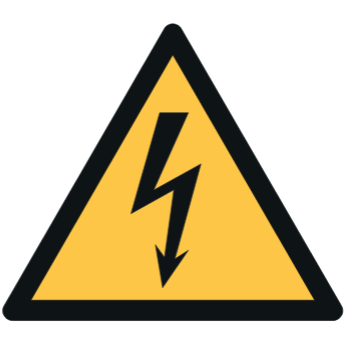- Many Community members ask here advice to modify their electrical installations. Please do not rely only on the advice here from other community members, always verify and work safe.
- If you are not 100% sure about it: 8. Seek Professional Assistance
- Check local regulations, in some countries you are not allowed to make modifications on your own electrical installation! Again: 8. Seek Professional Assistance .
- Please read the warnings below!

WARNING: Electrical Safety is Paramount
Working on electrical installations in residential settings poses significant safety hazards, demanding utmost vigilance and adherence to strict safety protocols. Negligence or improper handling of electrical systems can lead to severe consequences, including electrocution, fires, and property damage.
Dangers of Electrical Work
Electrical currents, even at low voltages, can cause serious injuries if they come into contact with the human body. The flow of electricity through the body can disrupt the nervous system, leading to muscle spasms, paralysis, and even death.
Exposure to arcing, a sudden and intense release of electrical energy, can cause severe burns and eye damage. Arcing can also ignite flammable materials, potentially starting fires.
Precautions for Electrical Work
To safeguard yourself and others, always exercise utmost caution when working on electrical installations in residential settings. Here are some essential safety measures to follow:
-
Ensure Proper Isolation: Always switch off the main power supply to the electrical circuit you intend to work on. Verify that the power is off using a voltage tester to prevent accidental contact with live electrical components.
-
Use Proper Tools: Employ insulated tools specifically designed for electrical work. Avoid using regular metal tools, as they can conduct electricity and pose a significant shock hazard.
-
Maintain a Safe Distance: Keep a safe distance from energized electrical components. Avoid touching any exposed wires or conductors, and maintain a minimum distance of at least 6 feet from energized equipment.
-
Ground Fault Circuit Interrupters (GFCIs): Utilize GFCIs, which automatically cut off power in case of a current leak or ground fault, minimizing the risk of electric shock.
-
Non-Conductive Materials: Wear non-conductive shoes and gloves to prevent electrical conductivity and potential shock hazards.
-
Wet Conditions: Avoid working on electrical systems near water or damp areas, as water conducts electricity, significantly increasing the risk of shock and fire hazards.
-
Proper Training: Only individuals with adequate electrical training and experience should undertake electrical work. Self-taught or unqualified individuals are at a higher risk of making mistakes that could lead to severe consequences.
-
Seek Professional Assistance: For complex or high-risk electrical work, always consult a qualified electrician. Attempting to tackle beyond your expertise can be extremely dangerous and could result in irreparable damage.
Remember, electrical work demands extreme caution and adherence to safety protocols. By following these guidelines, you can significantly reduce the risk of accidents and ensure the safety of yourself, your colleagues, and your property.
(Thanks Bard ![]() )
)